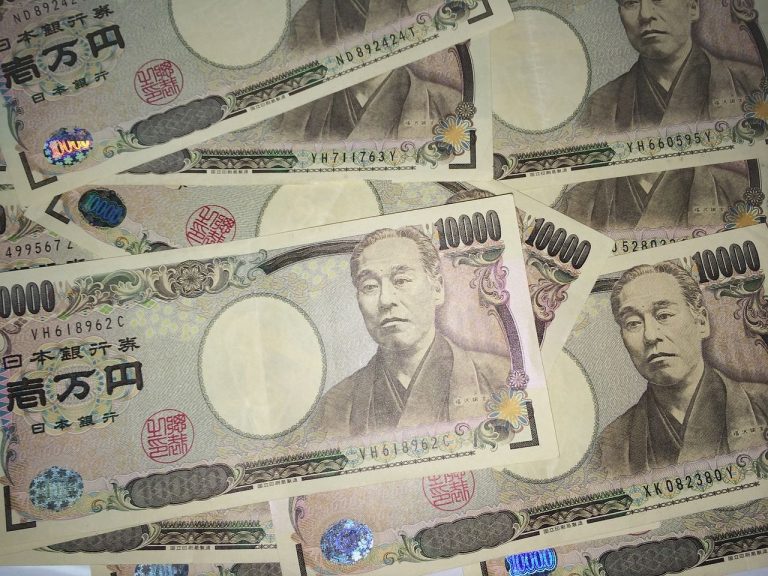Investors are moving rapidly into traditional safe haven assets after US President Donald Trump announced sweeping reciprocal tariffs last week, intensifying fears of a global economic downturn.
Among the preferred refuges are the Japanese yen, Swiss franc, government bonds, and gold, analysts say.
The Japanese yen, long considered a go-to asset in times of market stress, has gained around 3% against the US dollar since early April.
Experts say this is just the beginning.
Ebrahim Rahbari, head of rates strategy at Absolute Strategy Research, argued that the yen is well positioned to benefit from both lower US interest rates and Japan’s relatively modest exposure to global trade pressures.
“The Japanese yen will be a good — and probably the best — candidate to hide from trade tensions and a US recession,” Rahbari told CNBC.
“It is cheap, the likely decline in US interest rates will narrow the rate differentials to the yen, and even though Japan is a prominent exporter, its overall reliance on trade is lower now, particularly as fiscal policy has been loose,” he said.
Swiss franc also gains favour amid yen uncertainties
Similarly, the Swiss franc has strengthened by more than 3%, touching a fresh six-month high.
Market participants see it as another reliable shield against the turmoil triggered by Trump’s trade moves.
Matt Orton, head of advisory solutions at Raymond James Investment Management, pointed out that while both the yen and the franc offer safe harbour, the Swiss currency might be the better choice.
“Given the uncertainty around the Bank of Japan’s rate hike trajectory, the franc may act as a stronger hedge,” he said.
The Bank of Japan’s next steps remain a point of debate among analysts.
While the yen typically thrives during global slowdowns, Japan’s own economic vulnerabilities—particularly Trump’s targeted tariffs on cars and parts—may limit its upside.
Jeff Ng, head of Asia macro strategy at Sumitomo Mitsui Banking Corporation, said: “Even if the world avoids a hard landing, the yen may do well as the BOJ potentially hikes against a wave of global easing.”
However, he cautioned that a slowing domestic economy could force the BOJ to keep rates low, tempering yen gains.
Eyes turn to exotic alternatives and bonds
Beyond the familiar safe havens, some investors are exploring more unconventional options.
Rahbari highlighted the Brazilian real as a potential beneficiary.
“It is cheap, offers high carry, and is relatively insulated from global trade dynamics,” he explained, adding that the real has been among the year’s top performers.
Investors are also pouring funds into cash and low-risk fixed income instruments such as US Treasurys and Japanese government bonds.
Yields on both have tumbled, reflecting surging demand.
The benchmark US 10-year Treasury yield slid 6% since early April, while Japan’s 10-year bond yield plunged to its lowest level since December 2024.
José Torres, senior economist at Interactive Brokers, observed that risk-off positioning has gripped markets.
Investors are shedding equities in favour of Treasurys, gold, crude oil, and a range of derivatives aimed at hedging against further market declines.
Gold shines as market anxiety intensifies
Among safe havens, gold remains a standout. Prices surged to a record high following Trump’s announcement, and although they have retreated slightly, they remain elevated.
Analysts expect more gains if geopolitical and trade uncertainties persist.
“Gold remains boosted by escalating trade uncertainties, heightened geopolitical tensions, a weaker US dollar, increasing central bank purchases, and rising risks of recession,” said BMI analysts.
Adrian Ash, director of research at BullionVault, agreed. “Weaker trade, higher input costs and shrinking margins are badly hurting the stock market,” he said.
“Such a gloomy outlook for economic growth offers the perfect backdrop for further gains in gold.”
Equities, meanwhile, have taken a beating. US markets closed last week with a loss of over 9%, according to FactSet, capping a brutal stretch for risk assets.
JPMorgan has raised its probability of a US and global recession to 60% by year-end, up from 40% earlier, reflecting the deepening gloom on Wall Street.
“There’s no bid for equities right now,” Orton said, capturing the prevailing market sentiment in a single line.
The post Seeking safe havens amid Trump tariff market mayhem? Here’s what analysts suggest appeared first on Invezz

